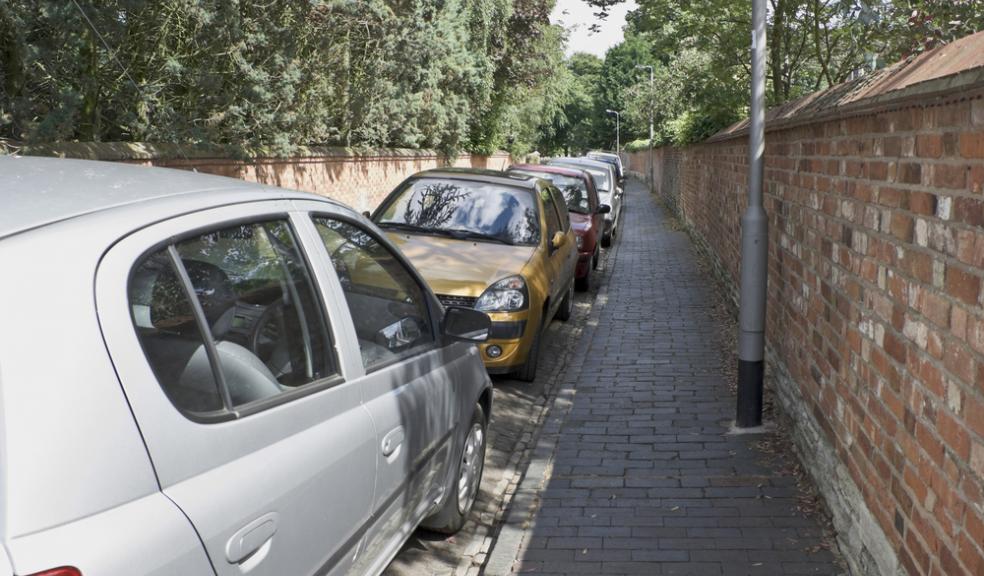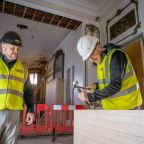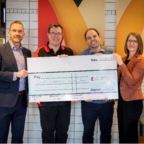
Plymouth one of the worst places for parking in UK
Plymouth is the sixth worst place for parking in the UK, according to a new study by Privilege car insurance.
The findings take into account the number of parking tickets issued, the length of time spent looking for a space and the number of parking-related prangs to produce a cumulative parking score; a measure of how bad it is to park in towns and cities across the UK.
People in Plymouth spend 35 minutes on average each week looking for a parking space, and 25% of drivers have received a parking ticket at least once in the past five years.
Plymouth drivers have also experienced an average of 2.8 parking prangs in the past five years according to the research, bringing their cumulative score to 199 and landing them sixth place in the top ten ranking of worst places for parking in the UK.
Birmingham topped the list with a cumulative parking score of 228. It was closely followed by Manchester (217), Cardiff (215) and Bristol (209). Surprisingly, Britain’s busiest city, London, only came in fifth place on the list, with a cumulative score of 204.
Birmingham’s residents experience damage to their cars once every 19 months on average (3.1 times every five years), compared to the UK average of once every 27 months; the equivalent of 15,750,805 collective parking prangs every year.
Manchester’s motorists suffer parking prangs just under once every two years (2.6 times in the last five years), whilst Cardiff’s drivers experience a parking incident just once every 29 months (a total of 2.1 times in the last five years). Those living in Newcastle get off most lightly when it comes to parking prangs, experiencing damage to their cars just 1.5 times every five years on average.
The average payment required to fix scrapes and scuffs caused by poor parking in the UK is £167, meaning that £2,627,599,796 of damage is caused across Britain each year in total.
Londoners only experience damage to their cars once every two years and two months (2.3 times every five years on average), helping to place the capital just fifth on the list of the worst places to park.
Though Birmingham tops the list overall, residents in Cardiff spend the longest looking for a space, driving around for 52 minutes each week; the equivalent to 2.8 days a year on average. This compares to the national average of just over two days (40 minutes a week) spent searching for somewhere to park*.
Cardiff is closely followed by Birmingham, where motorists spend an average of 47 minutes looking for a parking space each week, adding up to two and a half days a year spent driving around looking for somewhere to park. People living in Bristol and Edinburgh spend the least time space searching, needing to dedicate just 27 minutes per week to the task.
Traffic wardens are also on the prowl, with Birmingham, Liverpool and Newcastle receiving the most parking tickets and fines. A third (32 per cent) of residents say they have received a parking ticket in the last 5 years: five per cent more than the UK average (27 per cent).
Common parking incidents across the UK include someone opening their car door onto yours (39 per cent), someone scuffing the paint on your car when it is parked (35 per cent), and someone clipping your car on their way in to a space (31 per cent). The average parking fine is £42.
Reasons given for parking chaos include not having enough spaces to satisfy demand (56 per cent), not being able to find a space that doesn’t need to be paid for (32 per cent), double yellow lines (28 per cent) and residents parking schemes (26 per cent).
Charlotte Fielding, Head of Privilege Car Insurance, comments: “As technology such as parking sensors and parking assistance become increasingly standardised in our cars, we should hopefully start to see fewer parking prangs and incidents on our roads.
Fielding continues: “Cold sweats about parallel parking, or reversing into a space in a busy car park will soon be but a memory for motorists, with all of our lives made easier and more stress free by these advancements.”













